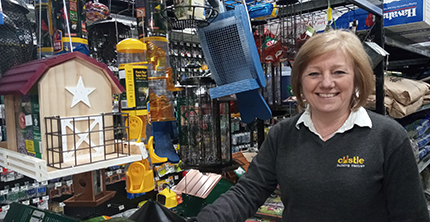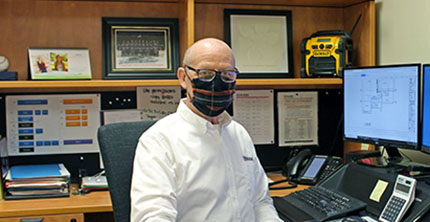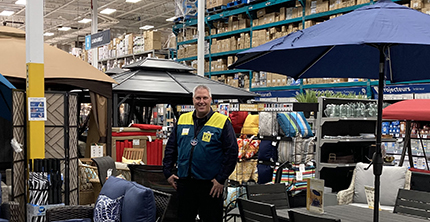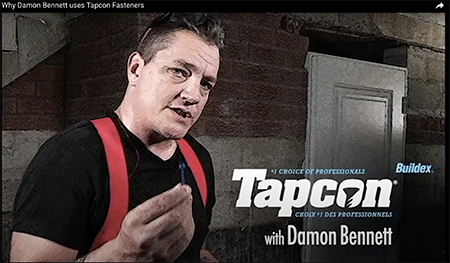March 2021 | vol. iv, #3
_________________________________________________________________
_________________________________________________________________

A YEAR LATER: RISING PRICES AND UNCERTAINTY AHEAD
A year ago, people were still coming into Linda Armstrong’s store, and without masks. A year ago, the reality of the pandemic had yet to settle in for all of us. Now, on the anniversary of the lockdowns that characterized the year of COVID, the conditions around how business is conducted have changed so dramatically that the circumstances of last spring are from another world.
Armstrong is the store manager at Eganville Country Depot, a Castle dealer in eastern Ontario. Things like curbside pickup, scarce staff, and rising prices are part of the new reality. But it’s also business as usual. “Business is pretty good,” she says. “We’re still busy. It’s slower now only because of the time of year; it’s early spring.”
But to get here, like so many other dealers, Armstrong rode a crazy wave of increased sales activity. By the summer, people were building outdoors. “What we saw last summer was a very busy time for decks.” She notes that the store was lucky to have a lot of pressure-treated wood in stock, “and that seemed to go well.” The word got out about the availability of wood products when other dealers were scrambling. “We had a lot of customers drive in from Ottawa, over an hour away. I remember one customer come in with a trailer on his vehicle. He was picking up for himself and a friend!”
Another category that did well through the pandemic was activity-related products, which proved effective for helping people pass the time during lockdowns. “We sell puzzles and giftware. Items like that, people came and bought a lot of.”
The challenges over the past year have included the new ways the store had to interact with customers. “Curbside made it all extremely difficult.” Customers and employees alike had to get accustomed to this and tempers often wore thin. Keeping people was and remains a challenge. “Definitely we’ve had trouble with staffing,” Armstrong adds.
Meanwhile, Eganville Country Depot is keeping busy as the busy season looms. Armstrong anticipates the return of some type of normalcy, but variables like consumer confidence and rising prices make that a tough call. As the cost of everything from wood products to hardware and fasteners keeps going up, she worries about how customers might react. “It’s hard to know what to bring in this time of year.” The moving target of pricing also makes ordering for the store problematic. “It’s going to be sort of a scary year ahead,” she admits.
_________________________________________________________________
_________________________________________________________________ 
HOW THE PANDEMIC CHANGED BUSINESS
As we pass the one-year mark for the initial COVID-19 lockdowns, dealers can look back and reflect on how they had to manage their company and their people differently throughout 2020. Hardlines talked to Tim Urquhart, president of Slegg Building Materials on Vancouver Island Island in British Columbia, last April. Here, we asked him to reflect on the previous year.
Hardlines: Looking back, how was the year?
Urquhart: It didn't go the way we thought. There was so much uncertainty in the beginning as to what was going to happen. Our business deals with the pros, the contractors. We didn’t know what was going to happen to job sites. We’re so heavily involved in new construction that we really needed to see what was going to happen. We didn’t expect the volume of business that we ended up with. We’re a 73-year-old company and 2020 broke all records, all sales records, the best year in our history.
We’re thankful that we were deemed as an essential service. Construction in British Columbia was deemed an essential service so we could keep going, so we could keep our people employed. We’re thankful for the way that it's gone.
Would you have done anything differently?
Urquhart: If I had to do it all over again, we should have had masks on our people. Especially our drivers, as there’s usually a driver and a helper. To have the two of them in a cab—we definitely have a policy in place now, but we didn’t in the beginning. That would be the one thing that I’d say we could have done better if I had to do it all over again. Now you almost feel that you aren’t dressed if you're not wearing a mask. It wasn’t that way in the beginning.
Have there been any positive changes for your staff?
Urquhart: We’ve learned who could be a remote worker and who could try and cut down [on in-person work]. We employ close to 500 people here on the island, and [we determined] how many could work from home. We learned that many jobs could be handled from home. We still got quite a few of our people that moved to remote work areas; they're still working that way.
Will remote work be permanent?
Urquhart: We didn’t enable remote work initially. We wanted people in our offices, and we wanted everybody together as a team. We’ve adjusted our thinking a little bit as we see that, ‘hey, this, this actually can work.’ Even with the regular colds and flu not hitting us the way that it has in the past year, maybe there’s some merit to not having as many people together working as necessary, or as unnecessary.
I can see us continuing with the remote workforce, which we’ve never done before. This is just a new way. The amount of team calls or Zoom calls we have now is 100-fold more than what it was pre-pandemic. We’ve learned to work this way. There are some advantages to having people together, that continual brainstorming and sharing of work, but we’ve been able to make that work and been able to keep people healthy.
For the foreseeable future, meaning 2021, I don’t see a return en masse to the workforce even after people have been immunized.
_________________________________________________________________
_________________________________________________________________

MANAGING A BIG BOX THROUGH COVID
A lot has changed since we talked to Christian Leduc in the spring of 2020. On top of the challenges of managing a big box store through a pandemic, more recently he’s changed stores.
Leduc spent last year serving his customers and managing his team at the RONA Plateau store in Gatineau, Que., across the Ottawa River from the nation’s capital. Early this year he was relocated, after more than a decade, to become general manager at the Réno-Dépôt store just 10 minutes down the road.
Already, as the warm weather arrives, Leduc is noticing people gearing up for spring. “People decided to buy early this year, after staying home a lot. So sales are good and the customers are happy,” he says.
But getting through the challenges of the past 12 months has made a lot of changes, some of them long-lasting, on his store and his staff. Changes like curbside pickup caused a big disruption, Leduc recalls, both from a logistical standpoint and a human perspective. Figuring out the mechanics of getting products to customers waiting outside the store was only complicated by the customers themselves as they grew increasingly upset and stressed by the pressures of the measures being placed on them due to COVID.
One of his big concerns currently is the shortage of supply. Those shortages, typical now of stores across the country, have affected his Réno-Dépôt store, which focuses more on pros than a typical Lowe’s or RONA big box. “A lot of stock has been so hard to get. Products like gypsum have been scarce, and in the plumbing department, stuff like ABS pipe is getting harder to find.” The combination of disrupted supply chains and increased demand from customers has caught retailers in the middle.
“Take pressure-treated wood,” Leduc says. “I’m good for the next couple of months, but after that, I could be stuck.”
Another concern that is common to the industry, but particularly acute in a store as big as his, is staffing. “The best place to work is Lowe’s,” he says enthusiastically. “They are always behind their employees.” And Lowe’s Canada certainly made headlines for providing bonuses to staff through the worst months of the pandemic. But Leduc anticipates that getting people is going to be a challenge this year, a problem as fewer associates must cope with growing customer counts. “Hiring is going to be tough.”
But he also sees some upsides that have come out of a year dealing with the pandemic. With curbside pickup worked out and standard practice at most stores now, Leduc thinks it would be a mistake to take it out of the mix after the pandemic is over. “Now we can serve many more customers, especially if they are concerned about their health.” Curbside pickup has become such a streamlined process, he adds, that “we have a greater opportunity resulting from the pandemic.”
He hints at other changes that his store’s parent company, Lowe’s Canada, is working on to adapt to the coming new normal. These include a means for customers to buy online and pick up their orders at the store without going inside or making contact with another person. “That’s another offer we’ll have for our customers to respond to what they need.”
Most of all, coming through the pandemic, Leduc has witnessed repeatedly a sense of solidarity that brought out the best of his company, from the individuals on the sales floor right up to head office.
________________________________________________________________
_________________________________________________________________
Video Content Provided by Trusted
Hardlines Media Partners



|